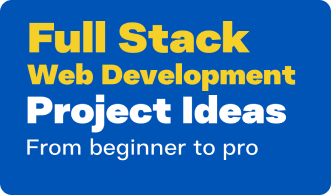You are a developer with an innovative idea for an application, you want to make sure it runs seamlessly on any platform. Whether it’s your local development environment or the cloud. That’s where containerization comes in.
First understand what containerization is? Containerization is the software deployment process of your application and houses everything that your application needs to run, including code, libraries, and settings.
Now, the question comes: why is it such a major concern in today’s software dev? So, the answer is regardless of the underlying infrastructure, you can consistently develop, test, and deploy your applications by containerization.
Till yet you had an understanding of how containerization is important? So if this entices you to learn about it then you have the two top certification options i.e Red Hat OpenShift and Podman, that are leading this ecosystem.
Red Hat OpenShift is a comprehensive container platform with a robust feature set for large-scale management and orchestration. Podman, on the other hand, is a simple tool for managing containers in your local environment that simplifies container deployment and maintenance.
This blog’s objective is to give a thorough insight to containerisation, with an emphasis on Podman and the Red Hat OpenShift platform. So let’s get started to learn more about it.
Containers act as self-contained units that bundle an application alongside its necessary components, guaranteeing consistent operation across diverse environments. They encapsulate everything essential for software execution, encompassing the code, runtime environment, libraries, and configuration parameters.
Think of containers as virtual envelopes; they isolate applications from their surroundings, ensuring they function reliably regardless of the underlying infrastructure. This encapsulation simplifies software deployment, as containers can be easily moved between different systems without compatibility concerns.
By packaging all dependencies within a single entity, containers streamline the development and deployment processes, fostering portability and scalability in modern computing environments.
Six Key Benefits of Containerization
Let’s understand what makes containerization ideal for modern and dynamic environments where agility and speed are essential.
- Keeps Things Separate:- It keeps applications and their dependencies separate, ensuring they run independently without interfering with other software on the system.
- Works Everywhere:- Package everything an application needs to run, guaranteeing consistency across different environments, from development to production.
- Grows When Needed:- Containers can quickly make more copies of a program if lots of people want to use it, so it doesn’t slow down.
- Saves Resources:- It doesn’t hog as much computer power, so you can run more programs on the same machine without it getting tired.
- Always the Same:- No matter where you run a container, it works exactly the same, so there aren’t any surprises.
- Quick to Start:- With lightweight architecture and fast startup times, containers accelerate the development process, enabling rapid deployment and iteration of applications.
Till you here have understood what are containers and benefits of it, let’s delve into the core of this blog, the reason you’re here.
The Red Hat OpenShift Container Platform represents a sophisticated solution tailored to assist enterprises in the streamlined development, deployment, and management of containerized applications. Drawing upon the robust foundation of Kubernetes, it incorporates a host of features to enhance operational efficiency.
For developers, it provides a comprehensive set of tools to facilitate agile application development. Its container orchestration capabilities ensure seamless deployment and scaling of workloads, while robust multi-cloud support enables organizations to manage applications across diverse cloud environments effortlessly.
Key highlights of Red Hat OpenShift encompass:
- Developer Empowerment: Unveiling a seamless ecosystem, OpenShift empowers developers with an arsenal of integrated tools for code management, continuous integration/continuous deployment (CI/CD), and collaborative endeavors.
- Orchestrating Excellence: With Kubernetes as its backbone, OpenShift orchestrates container management operations like scheduling, scaling, and load balancing, safeguarding application robustness and resilience.
- Flexibility Beyond Bounds: OpenShift’s prowess extends to multi-cloud scenarios, facilitating deployment across leading cloud providers such as AWS, Azure, Google Cloud Platform, and on-premises infrastructures.
- Integration Mastery: Seamlessly intertwining with cutting-edge service mesh technologies like Istio, OpenShift elevates network security, observability, and traffic control within intricate microservices architectures
What is Podman engine?
The Podman engine, a creation of Red Hat, stands out as a flexible container engine crafted to simplify container creation and management tasks. While bearing similarities to Docker, Podman introduces unique features that set it apart. It furnishes users with a dynamic environment conducive to streamlined container operations, empowering them to efficiently create, execute, and administer containers across diverse platforms.
Unlike some counterparts, Podman’s architecture operates sans a central daemon, a design choice that not only enhances flexibility but also fortifies security measures. Furthermore, Podman extends support for rootless containers, enabling users to launch containers without necessitating superuser privileges, thereby elevating system security. With its intuitive interface and robust functionality, Podman emerges as a sought-after tool for developers and system administrators seeking effective container management solutions.
Here are five noteworthy attributes of Podman:
- Rootless Containers: Podman’s standout capability lies in its aptitude for container operation sans the need for elevated privileges. By eliminating the necessity for superuser access, Podman enhances security while granting non-root users the ability to engage with containers securely.
- Pod Support: Introducing support for pods, Podman enables the aggregation of individual containers into cohesive units, akin to Kubernetes pods. This feature fosters the management of interrelated containers, facilitating the orchestration of intricate applications at a local level.
- Container Management: Podman equips users with a rich array of commands for container governance, encompassing creation, initiation, cessation, inspection, and deletion. Furthermore, Podman extends support for supplementary functionalities like container attachment, log viewing, and network administration.
- Compatibility with Docker: Recognizing the prevalence of Docker’s command-line interface (CLI), Podman endeavors for seamless integration with Docker’s familiar commands and workflows. This alignment ensures a smooth transition for users accustomed to Docker, enabling the effortless adoption of Podman.
- OCI (Open Container Initiative) Standards: Aligning with OCI benchmarks for container runtimes and images, Podman upholds compatibility with a broad spectrum of OCI-compliant tools and platforms. This adherence to standards fosters interoperability, simplifying integration with existing container environments and ecosystems.
Why is Mastering Containers With Red Hat Openshift and Podman Essential?
Mastering Containers with Red Hat OpenShift and Podman is highly valuable for individuals and organizations seeking to leverage containerization effectively. Here’s why enrolling in this course is advantageous:
- Leading Technologies: Red Hat OpenShift and Podman are prominent containerization tools widely used in enterprise settings. Acquiring proficiency in these platforms through DO188 provides expertise in sought-after tools.
- Comprehensive Skill Development: The course offers a thorough understanding of containerization concepts, covering orchestration and management. Participants learn to deploy, manage, and scale containerized applications using OpenShift, alongside efficient container management with Podman.
- Enterprise-Grade Orchestration: OpenShift offers robust container orchestration capabilities built on Kubernetes. Mastery of OpenShift empowers organizations to handle complex containerized workloads effectively.
- Experience: The course designed to simulate real-world situations, providing participants with practical experience to effectively apply their newly acquired knowledge. Mastery of OpenShift and Podman presents promising career prospects, particularly in DevOps, cloud computing, and containerization engineering domains, as organizations embrace containerization for deploying applications.
- Career Opportunities: For those seeking to deepen their understanding of these technologies, the DO188 certification presents an excellent opportunity. This certification delves into OpenShift and Podman, offering comprehensive insights and validating expertise in these areas. By obtaining the DO188 certification, individuals can enhance their professional credentials and position themselves for exciting career opportunities in the rapidly evolving landscape of containerized application deployment.
After learning about these technologies, you may be wondering how to further your knowledge of OpenShift and Podman. That’s where the DO188 certification comes in. Let’s explore this certification in detail below.
Why Taking A Certification Of D0188 Is Important ?
Red Hat’s DO188 certification is designed to educate people the fundamental understanding and abilities of containerisation with Red Hat OpenShift and Podman. Numerous facets of containerisation are covered in this programme, such as fundamental ideas, orchestration strategies, and management procedures.
By utilizing Red Hat OpenShift, participants in DO188 have hands-on experience deploying, scaling, and maintaining containerised applications. Additionally, they learn how to use the lightweight container engine Podman for efficient container management.
Professionals wishing to progress in DevOps and cloud computing with training course and improve their skills in containerisation will find great value in this certification. Being proficient with Podman and Red Hat OpenShift not only makes it easier to advance in your career, but it also makes you a vital member of any team that uses containerisation to deploy applications.
How We Can Elevates Your Experience in the Red Hat Do188 Certification Course
At Grass Solutions, we’re excited to introduce you to the Red Hat DO188 certification course, designed to elevate your skills in containerization using Red Hat OpenShift and Podman. Our program offers a comprehensive learning experience led by expert instructors, covering essential concepts and practical exercises to prepare you for real-world scenarios.
By enrolling in our DO188 course, you’ll not only enhance your expertise in containerization but also unlock numerous career opportunities. Whether you’re interested in advancing in DevOps, cloud computing, or containerization engineering, this certification will pave the way for your success.






